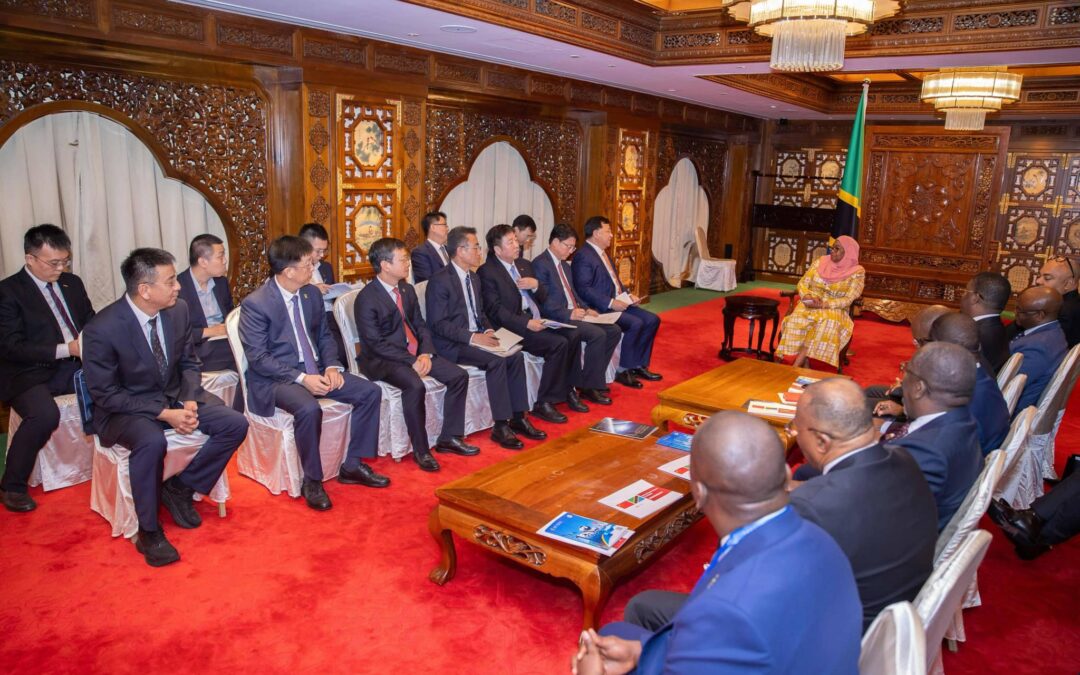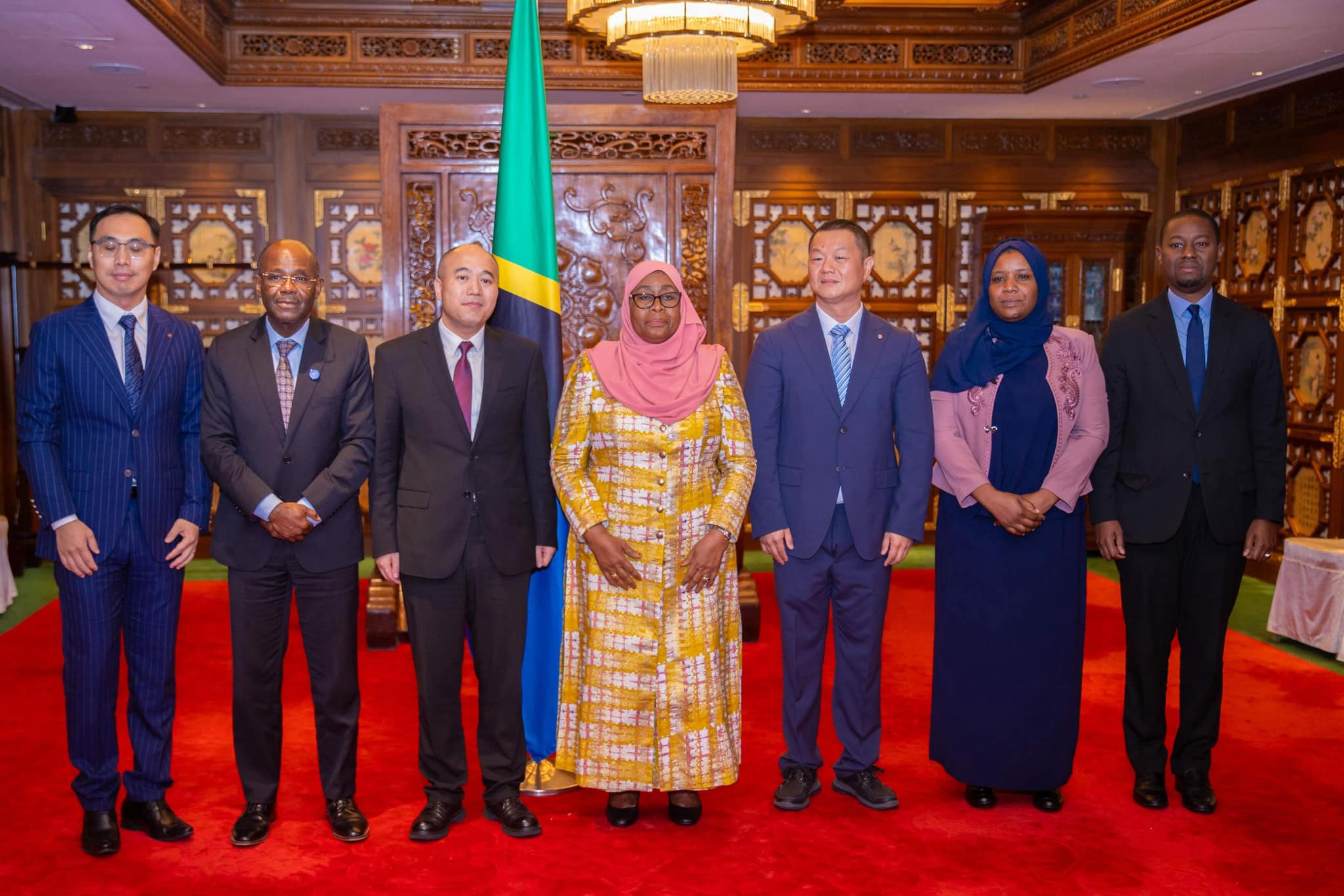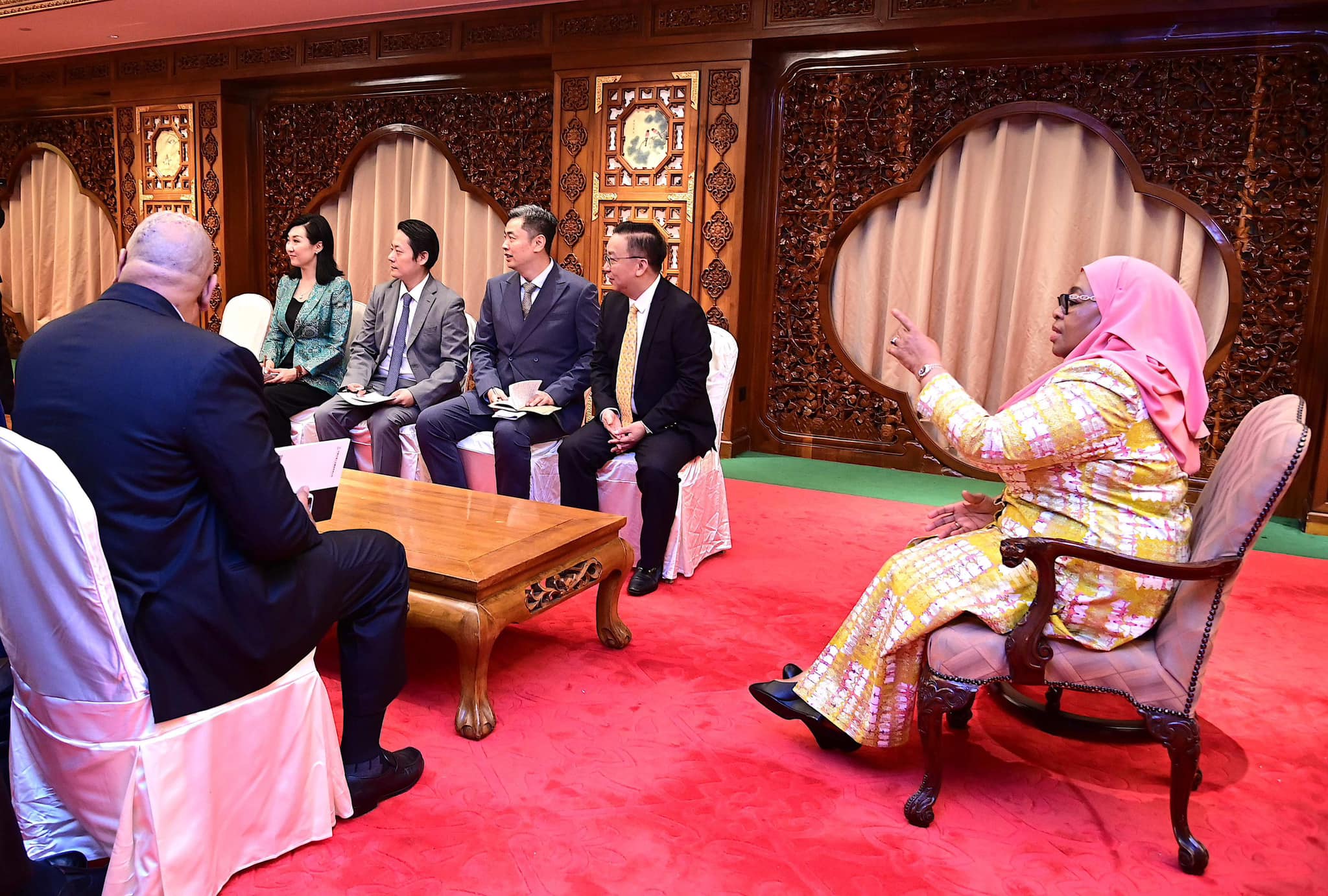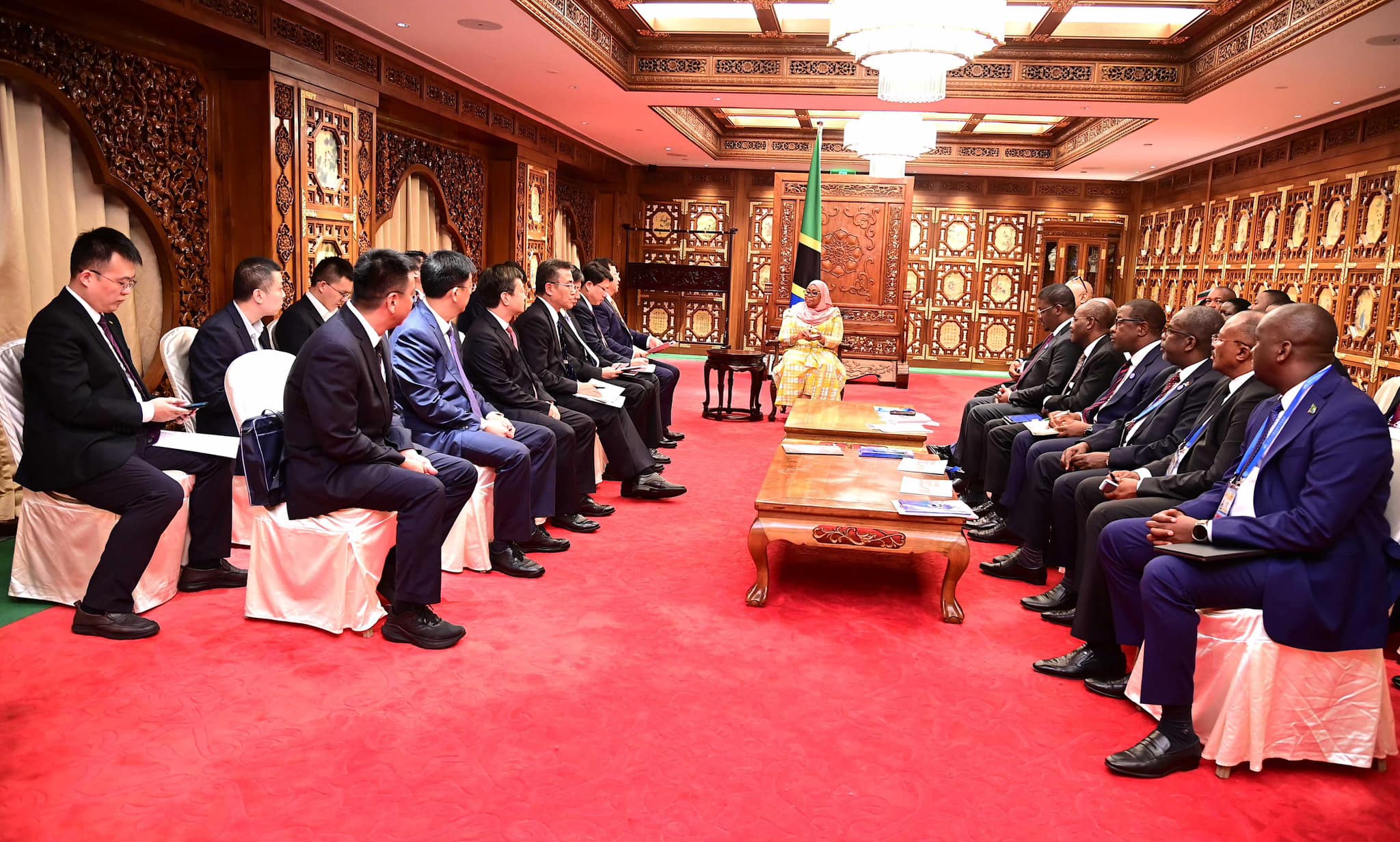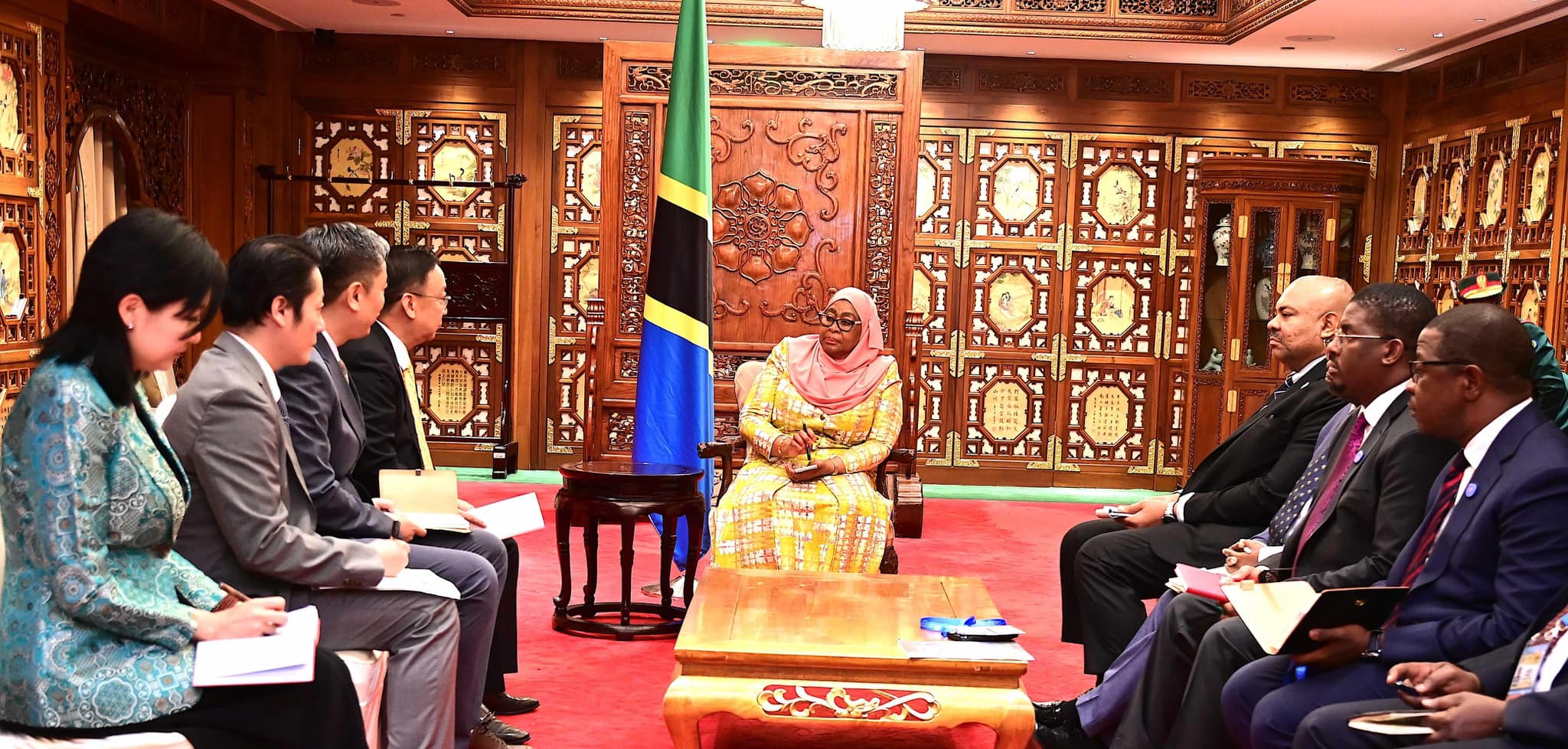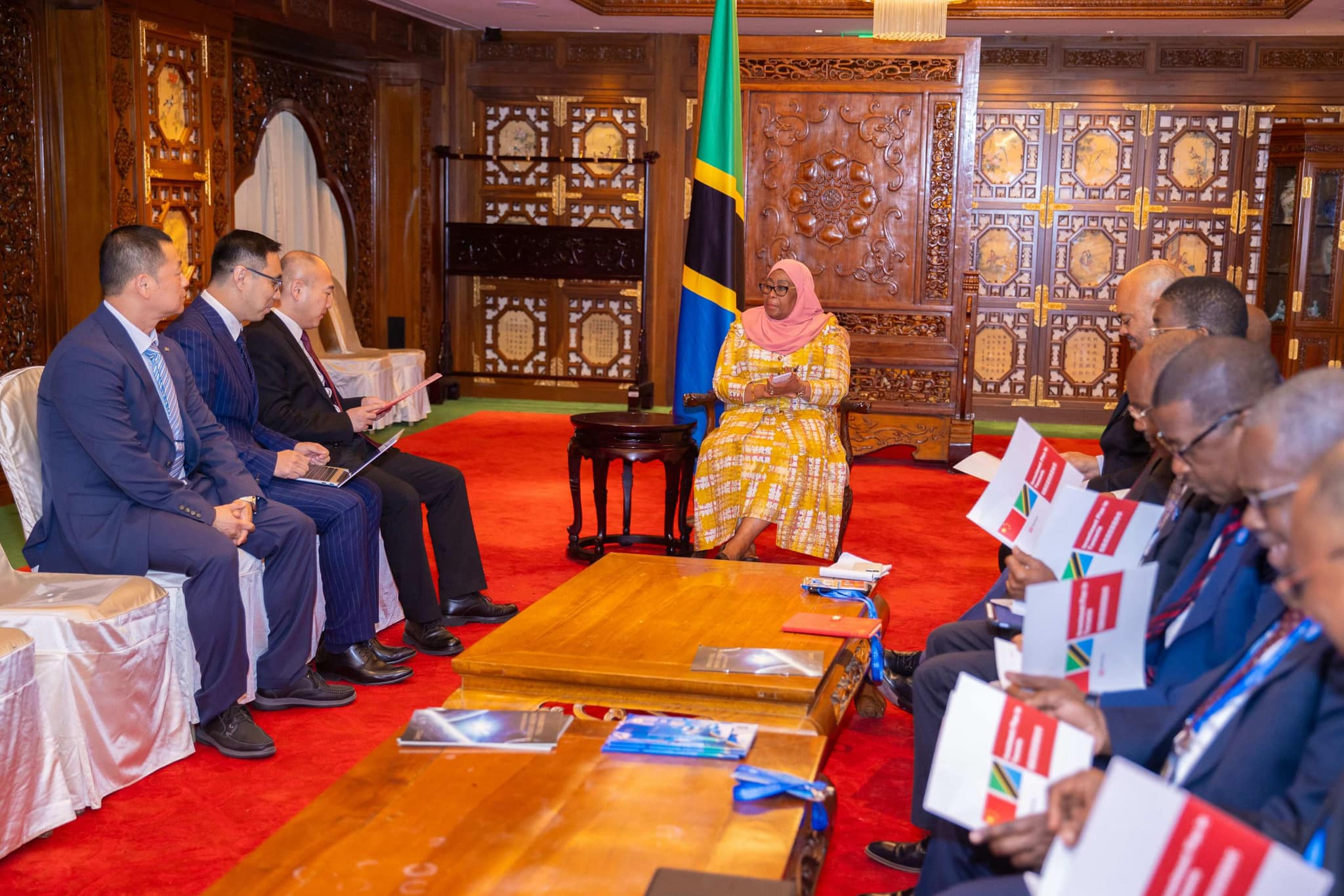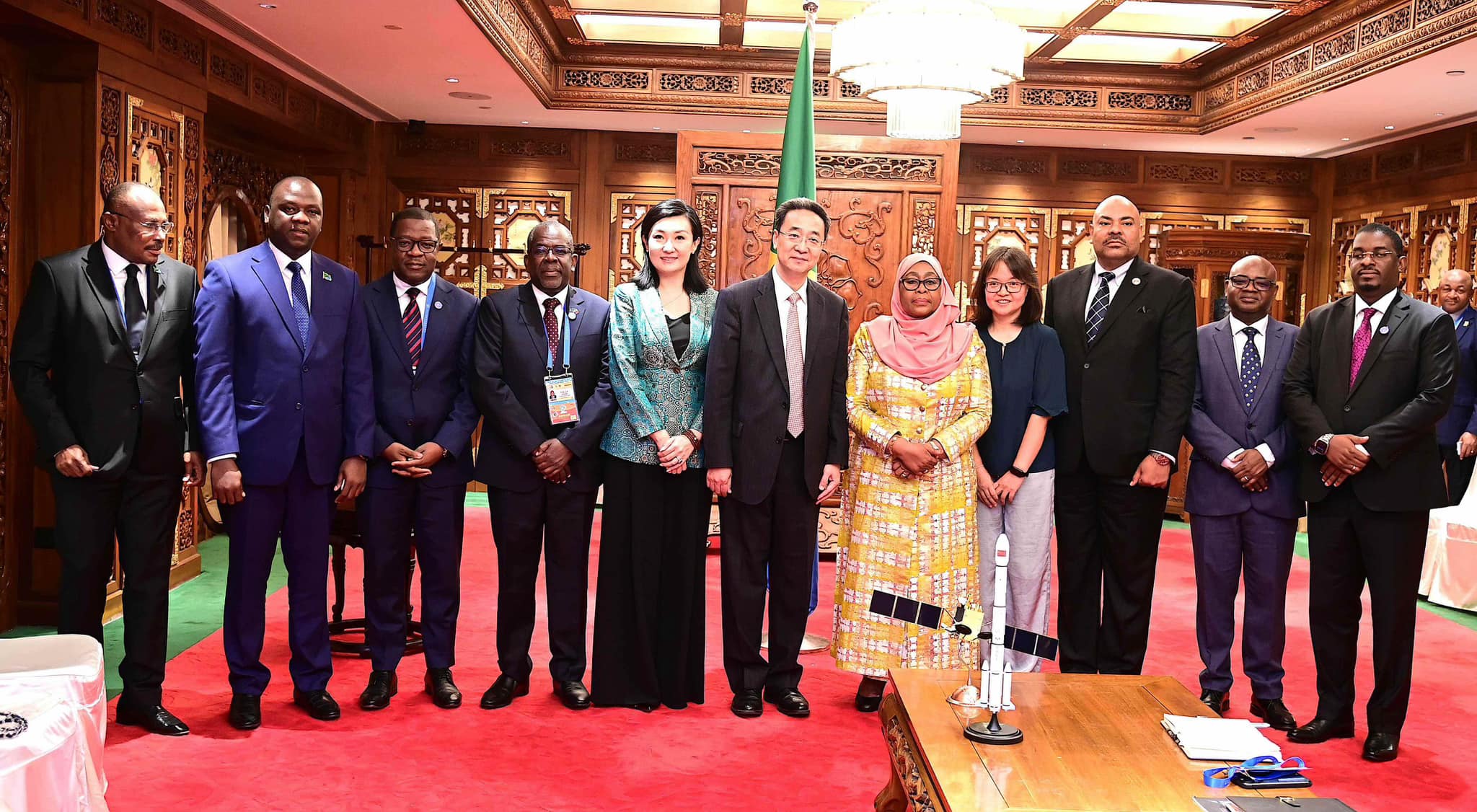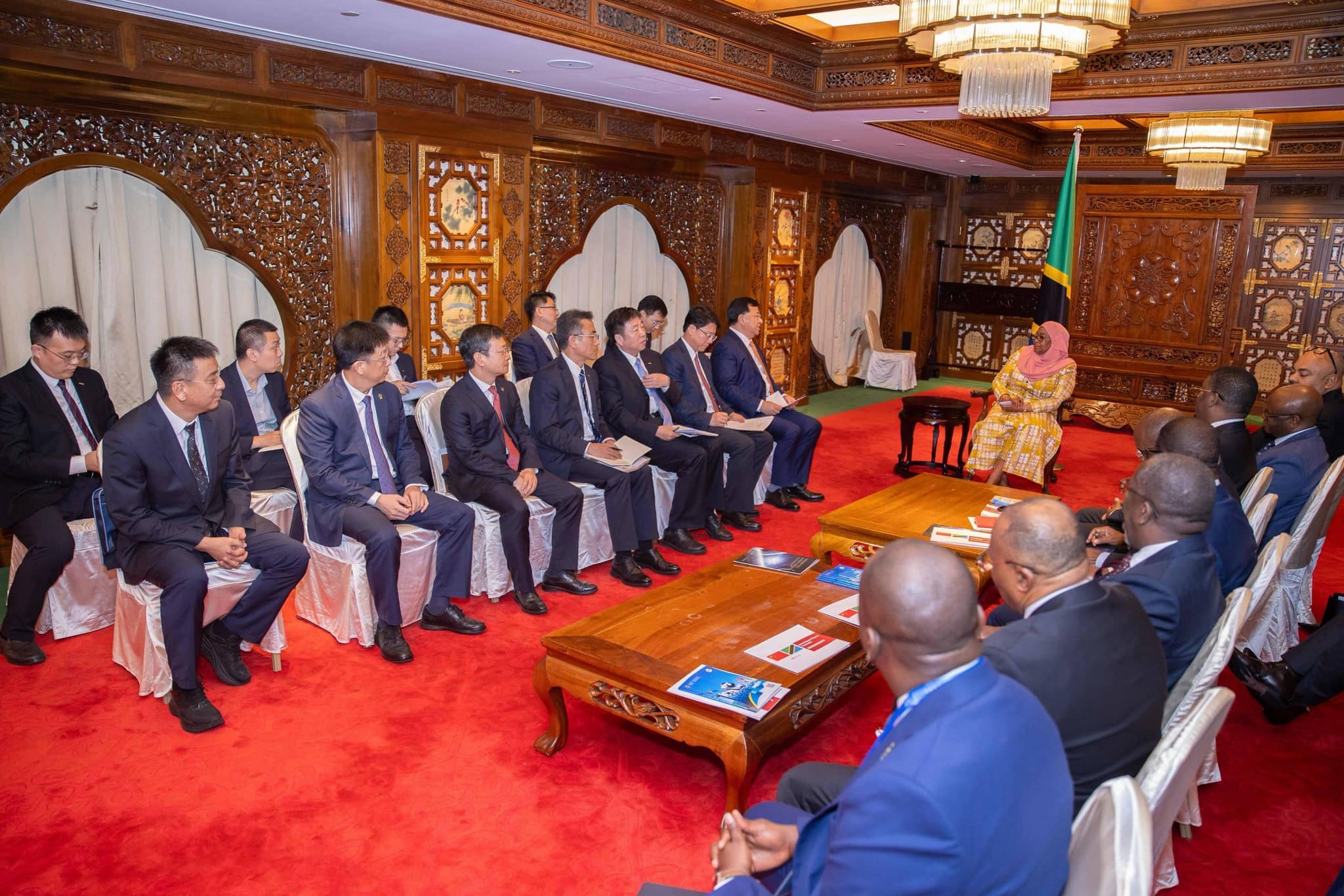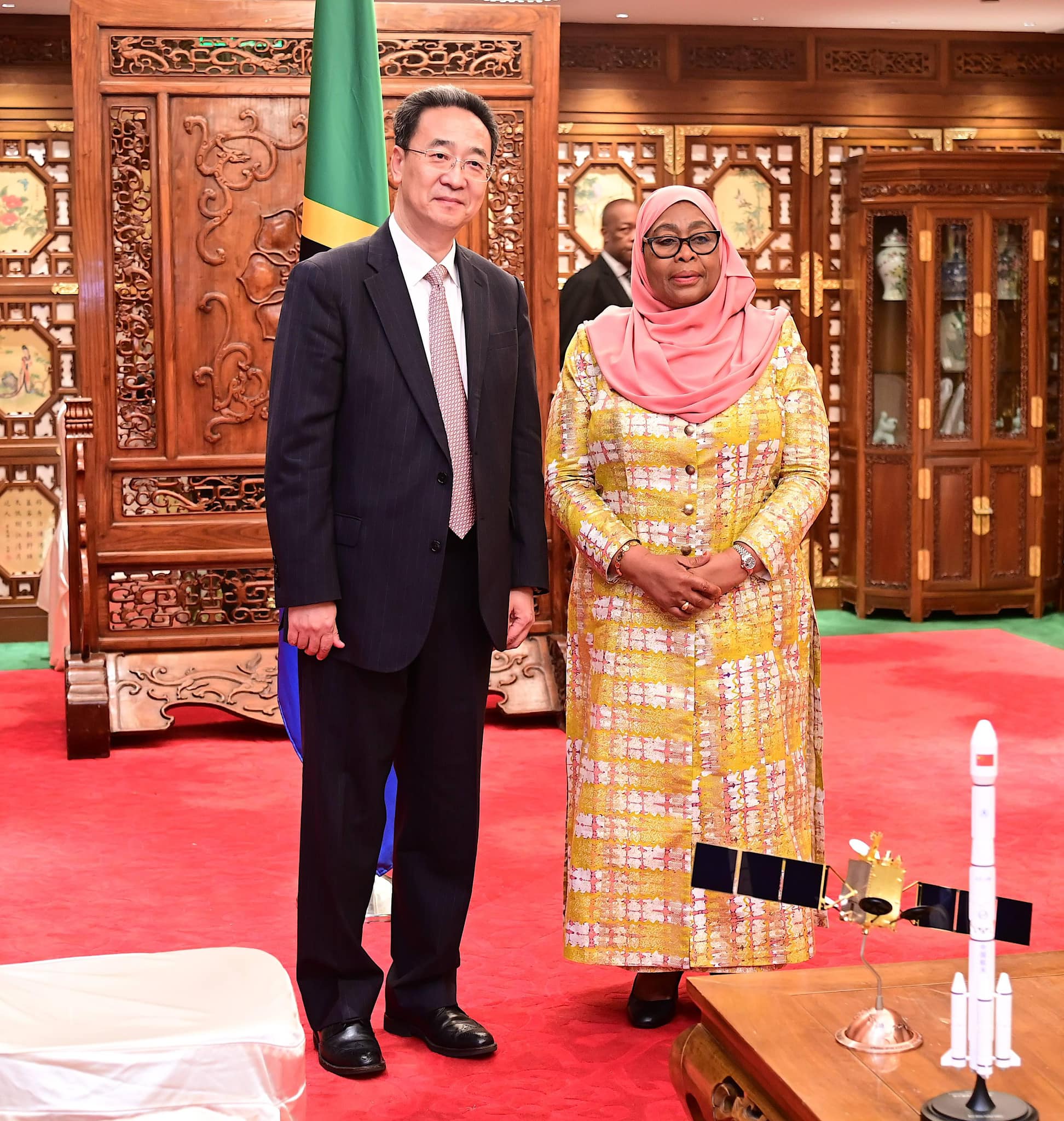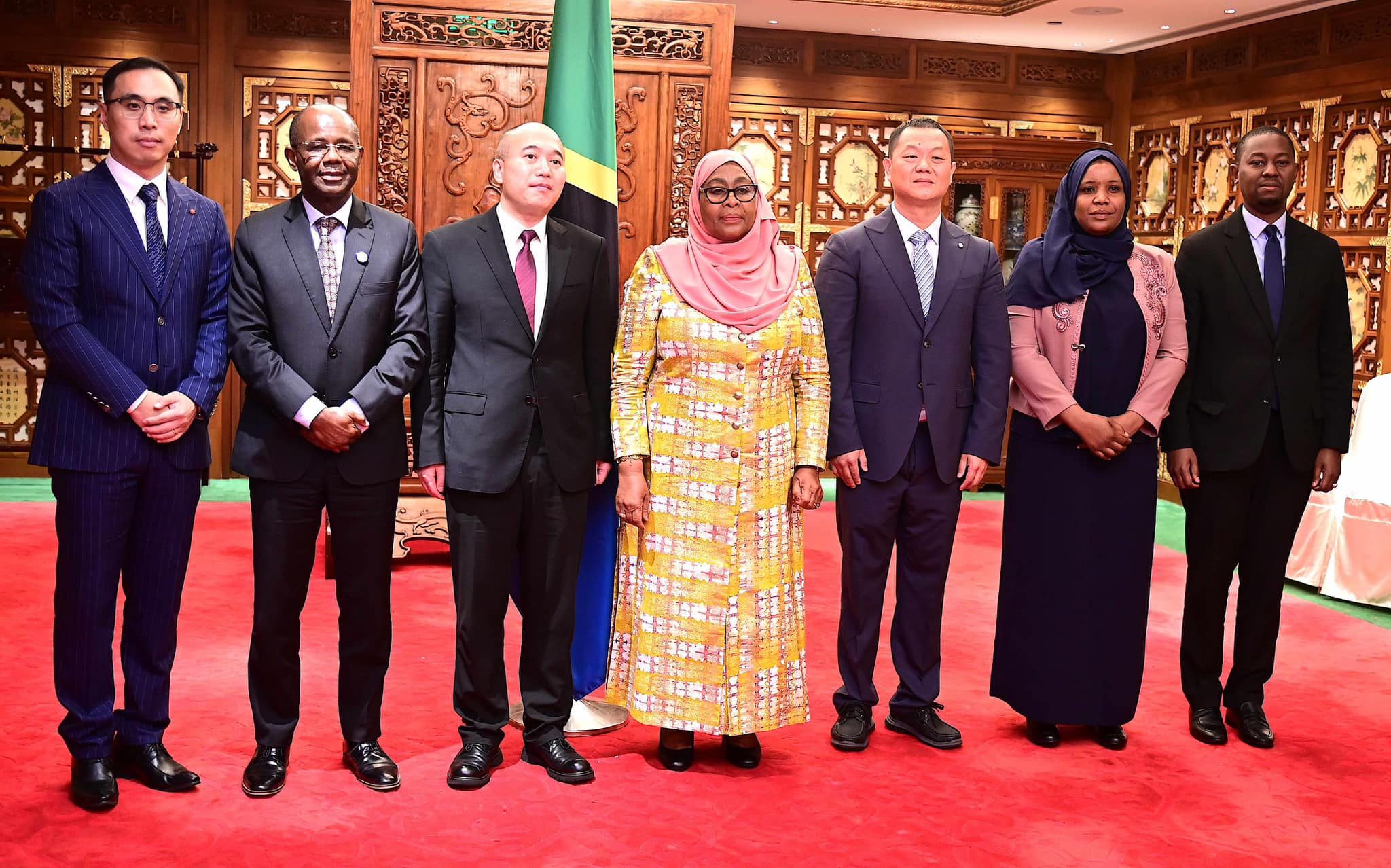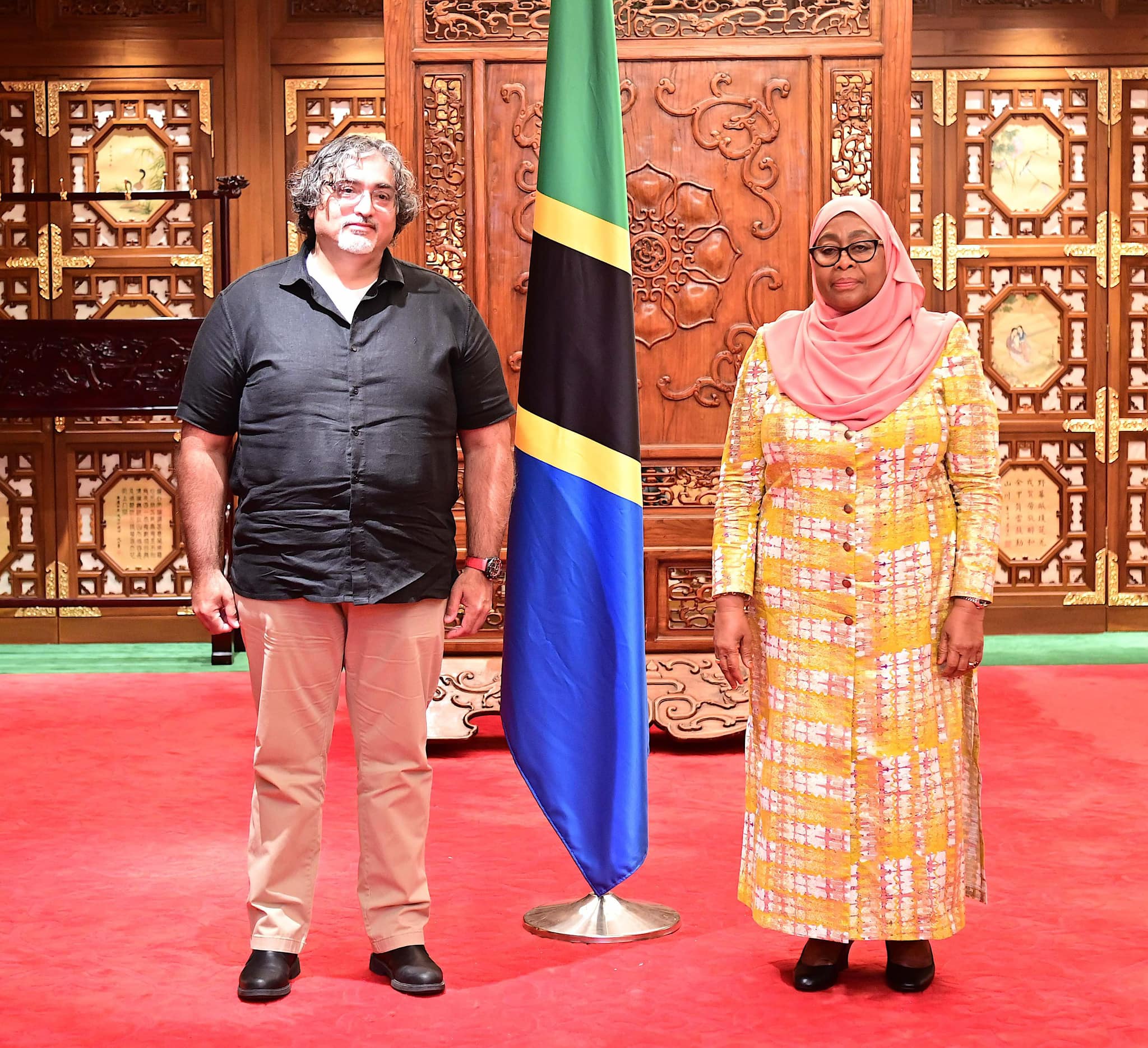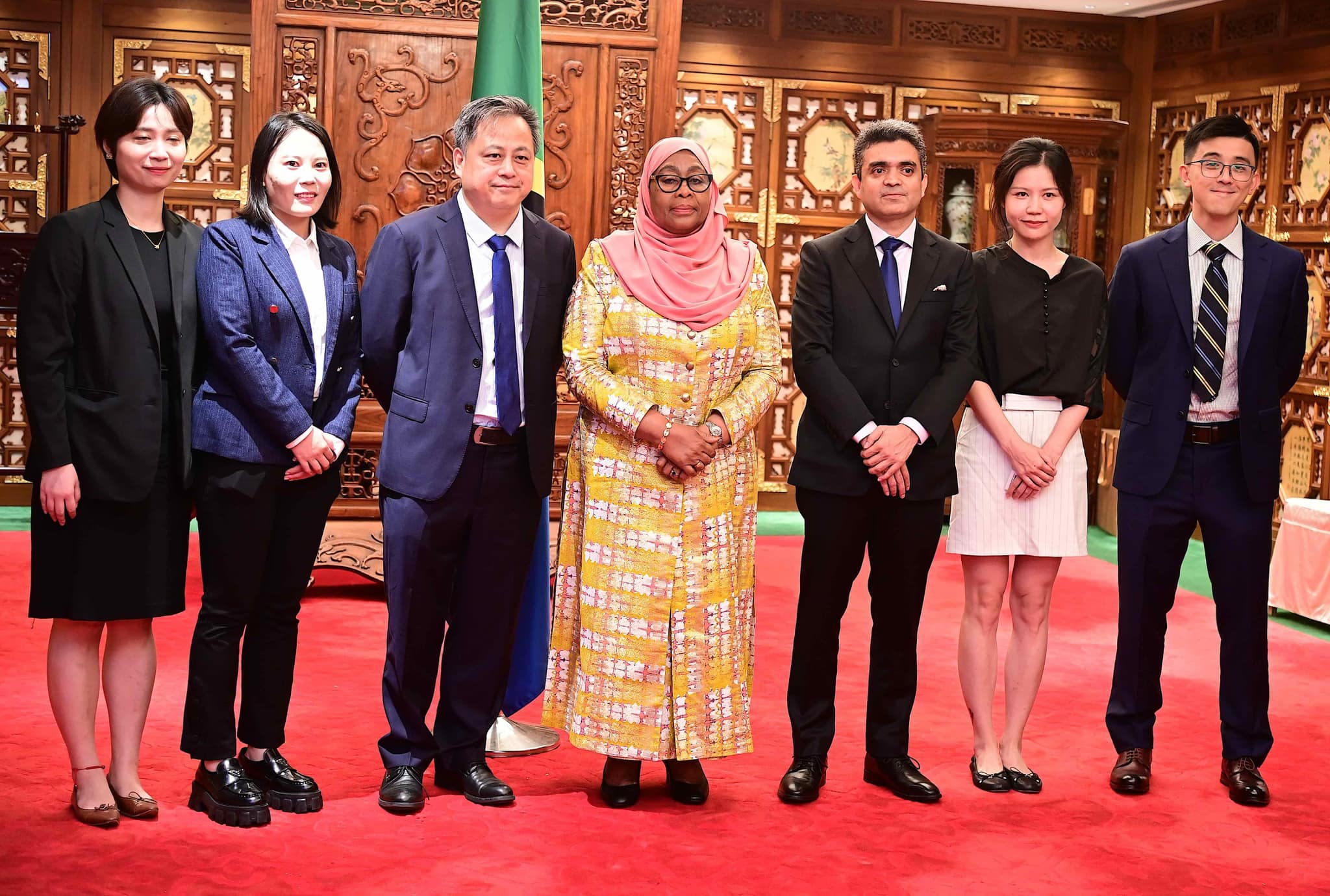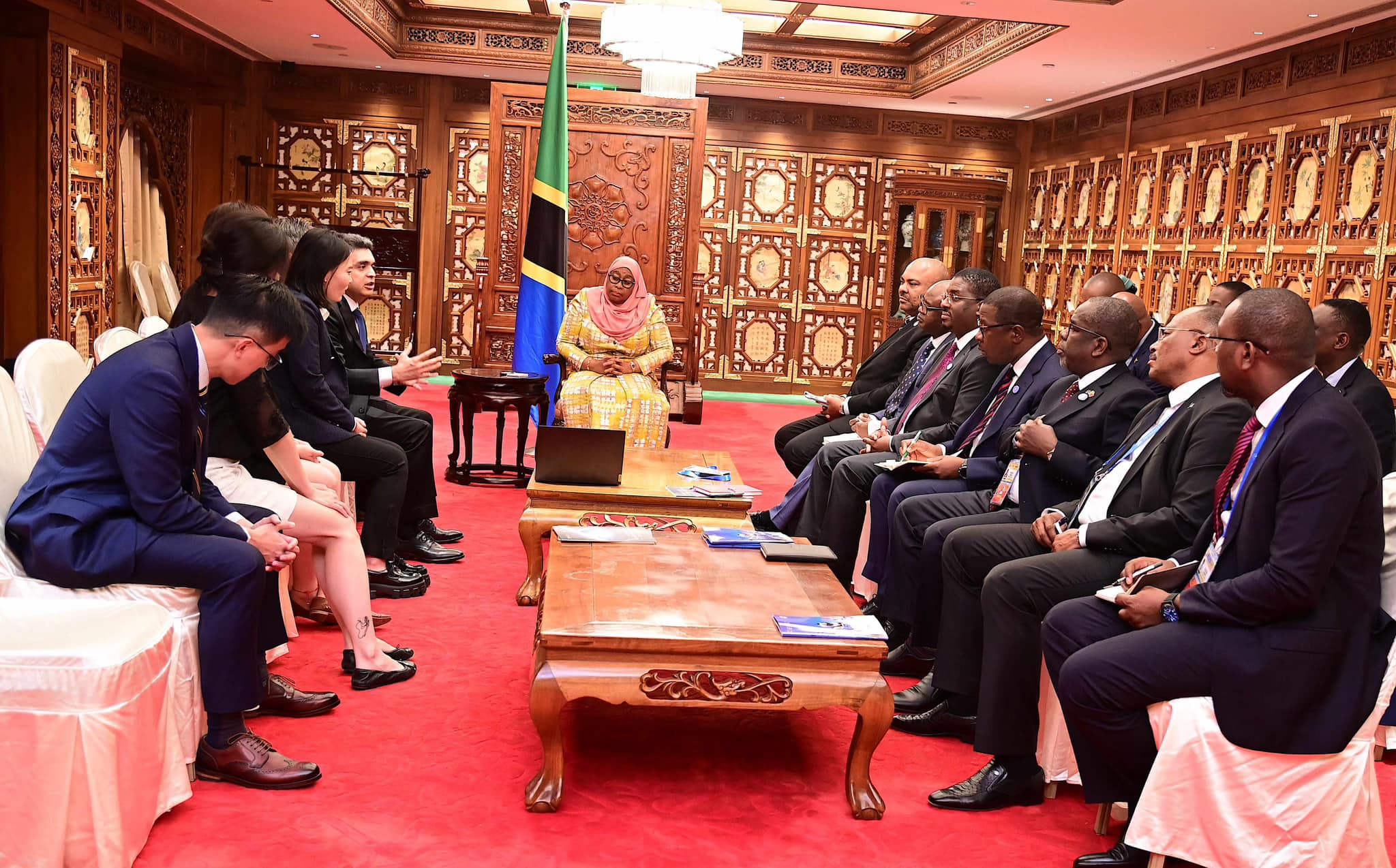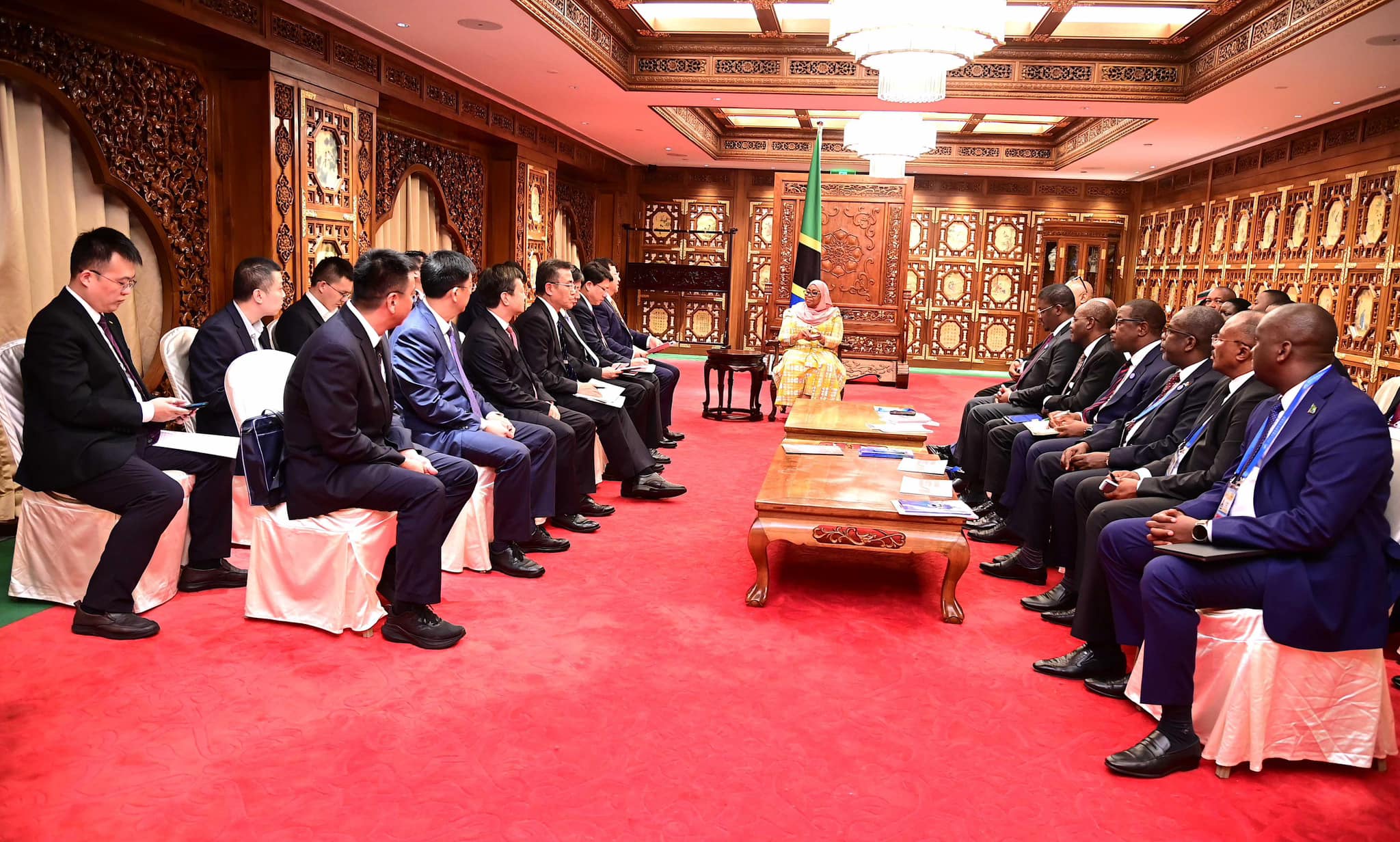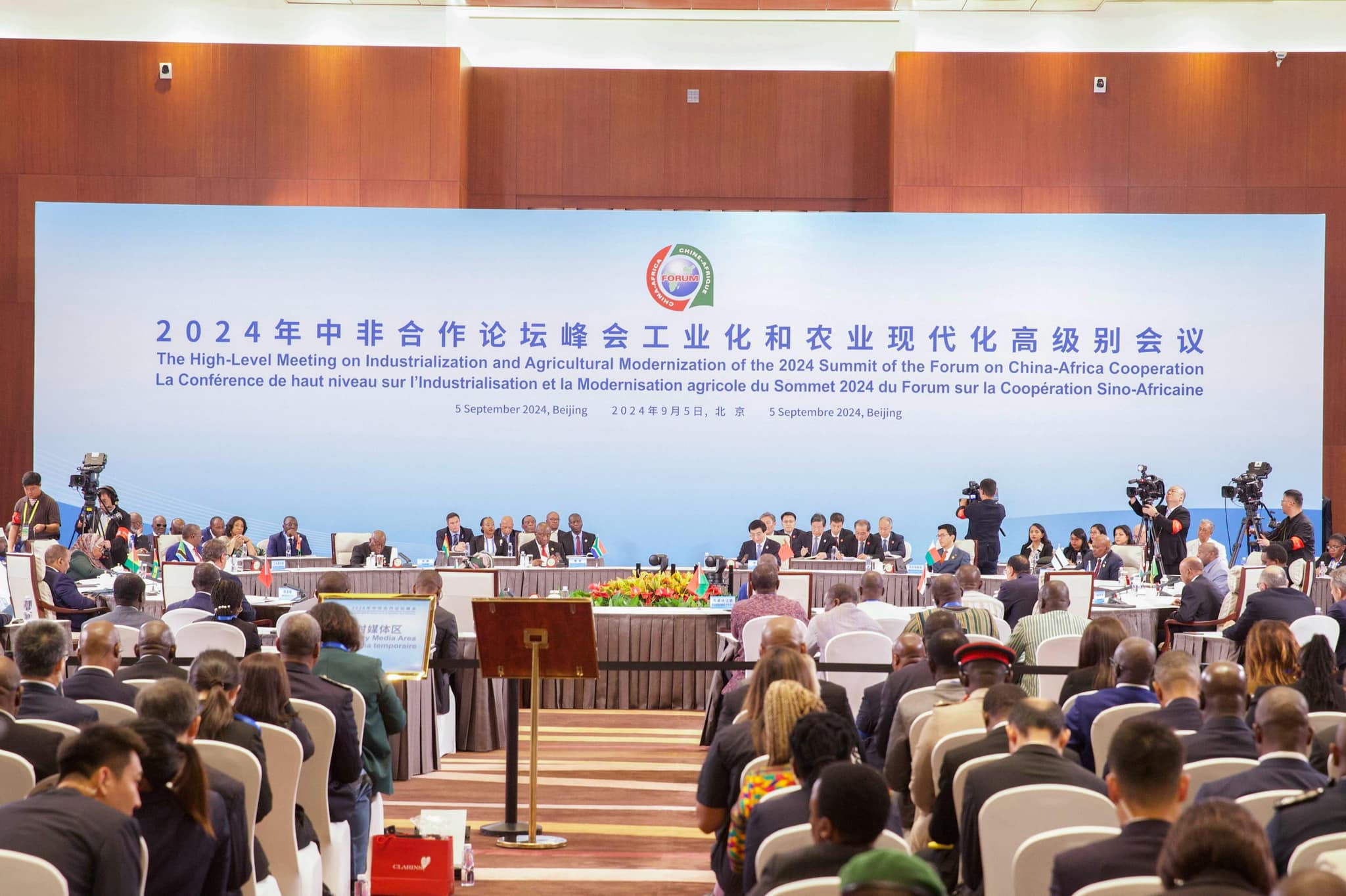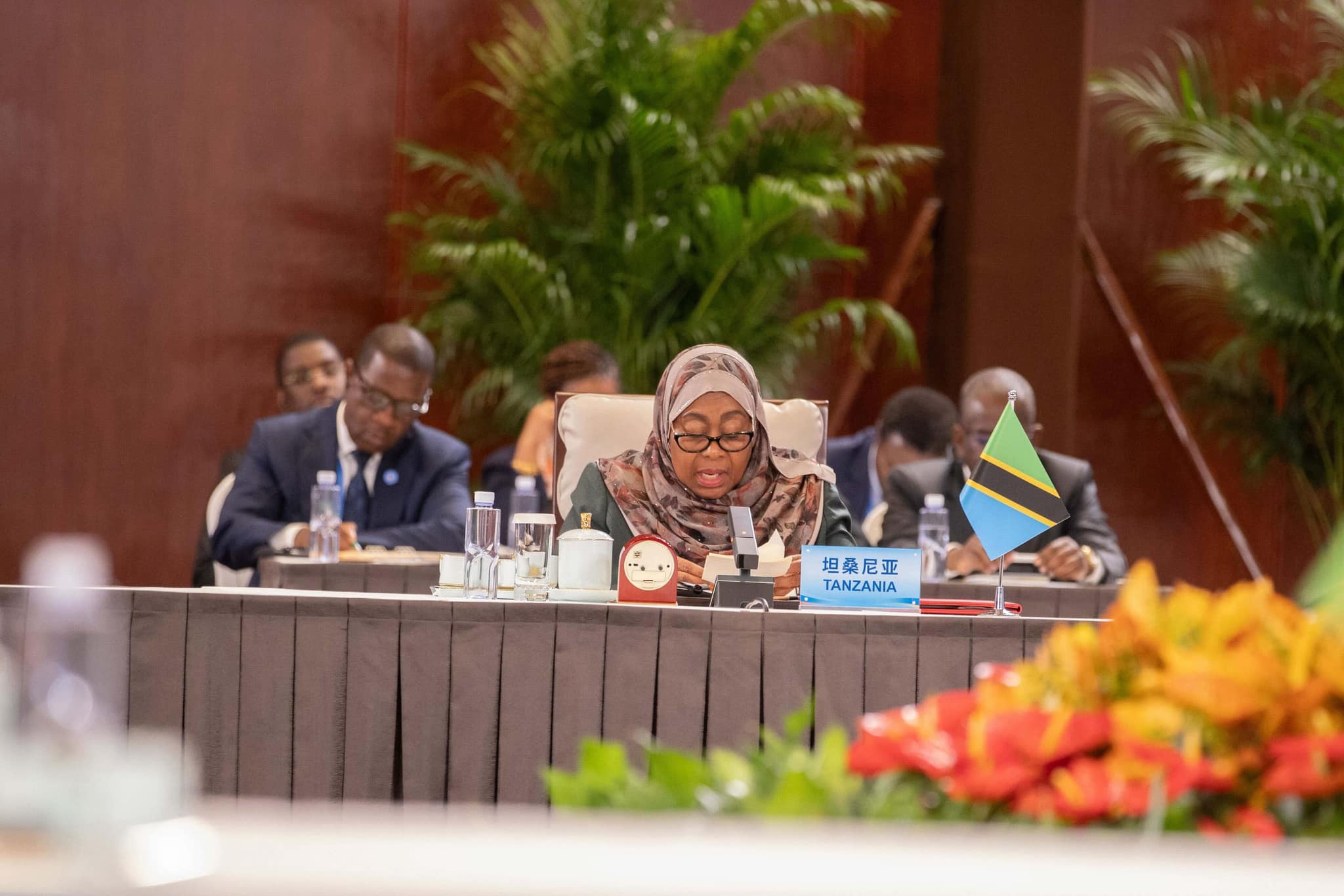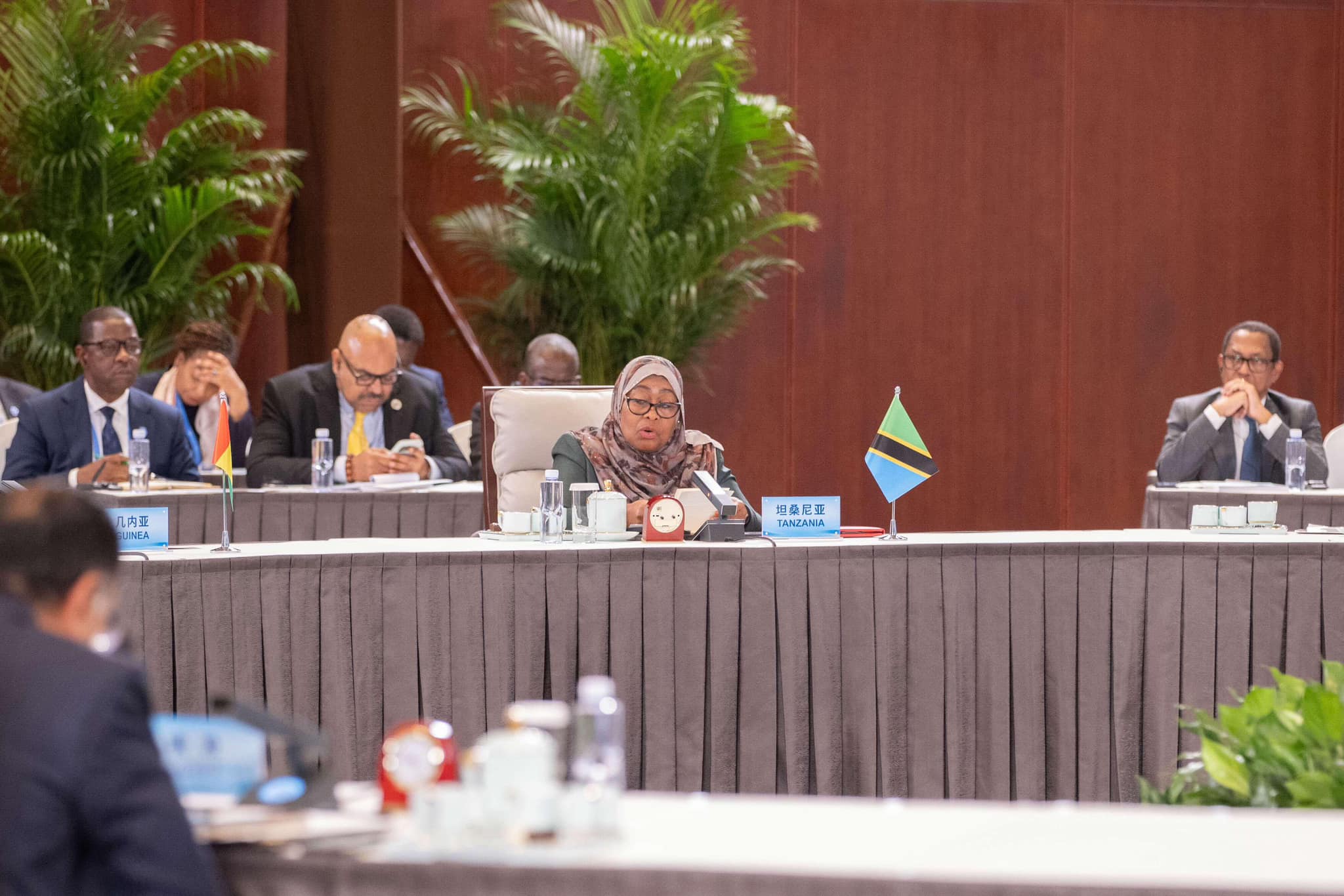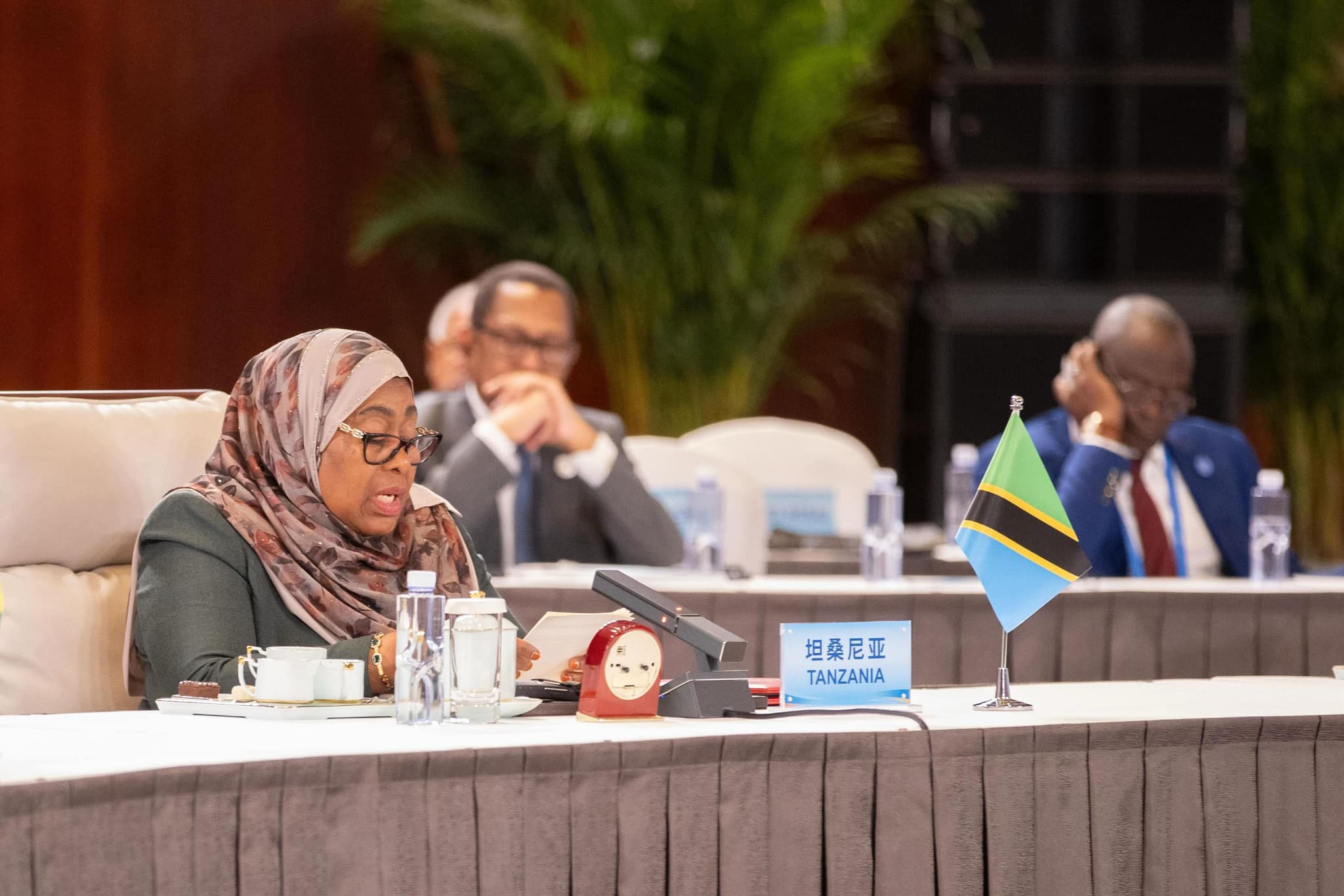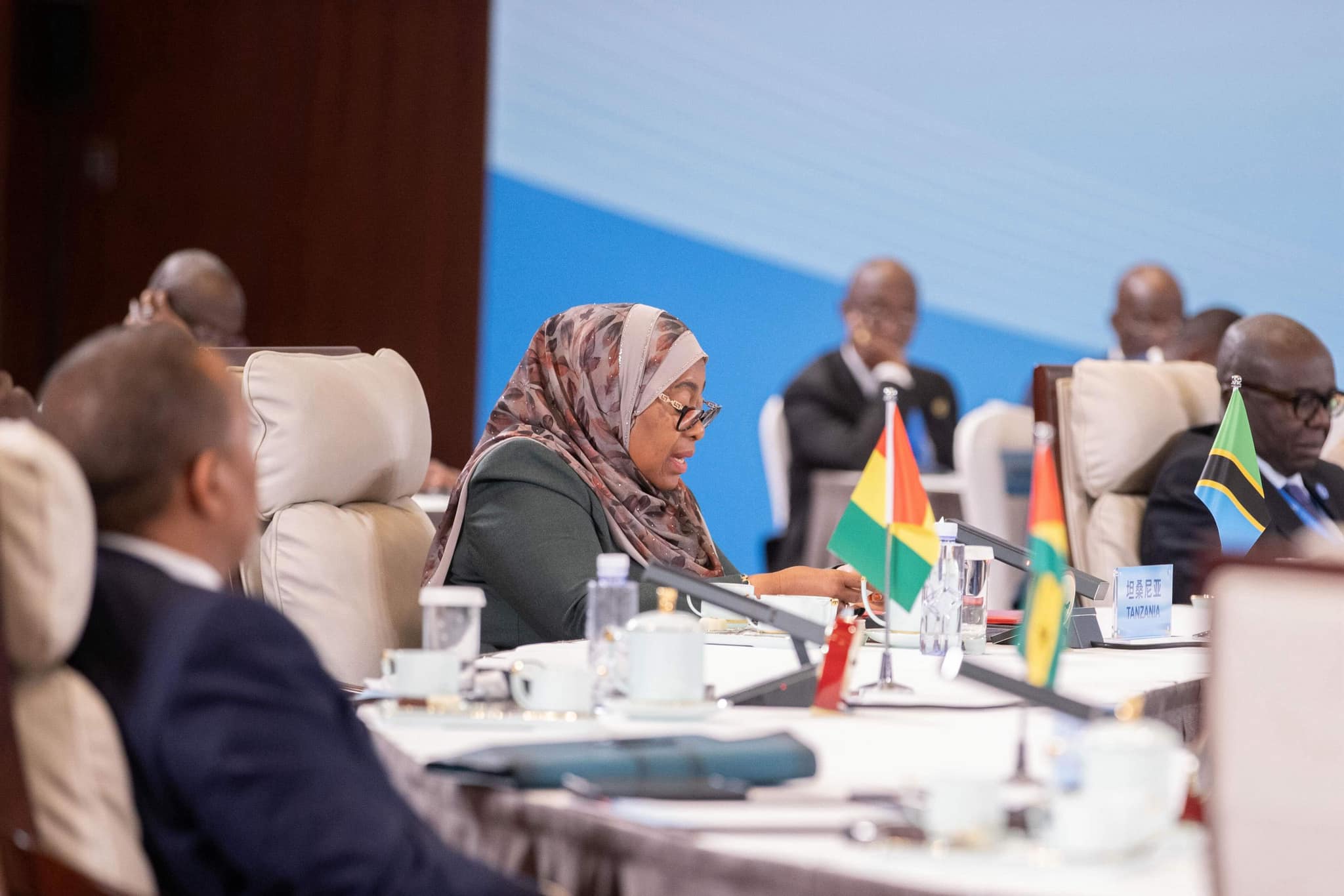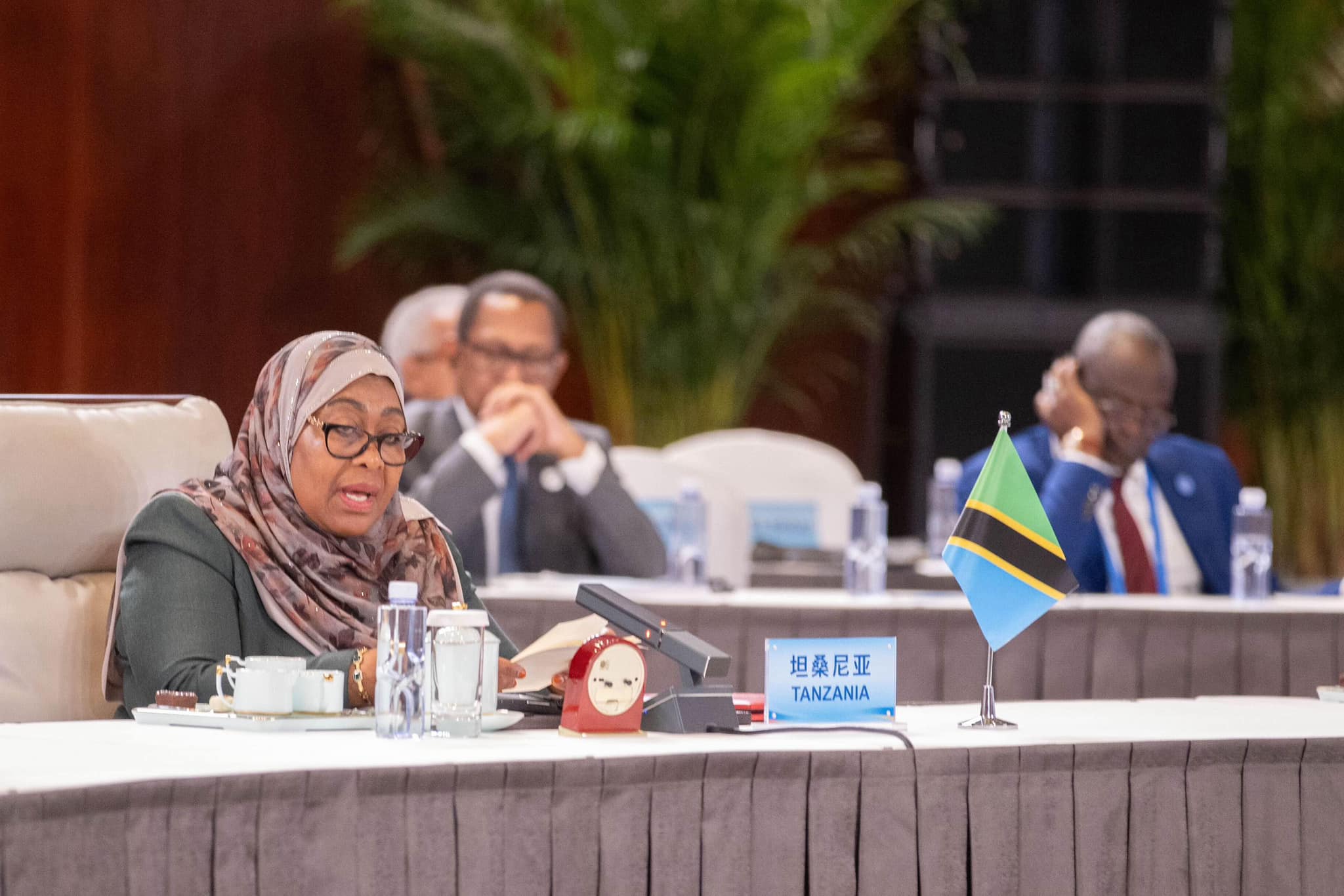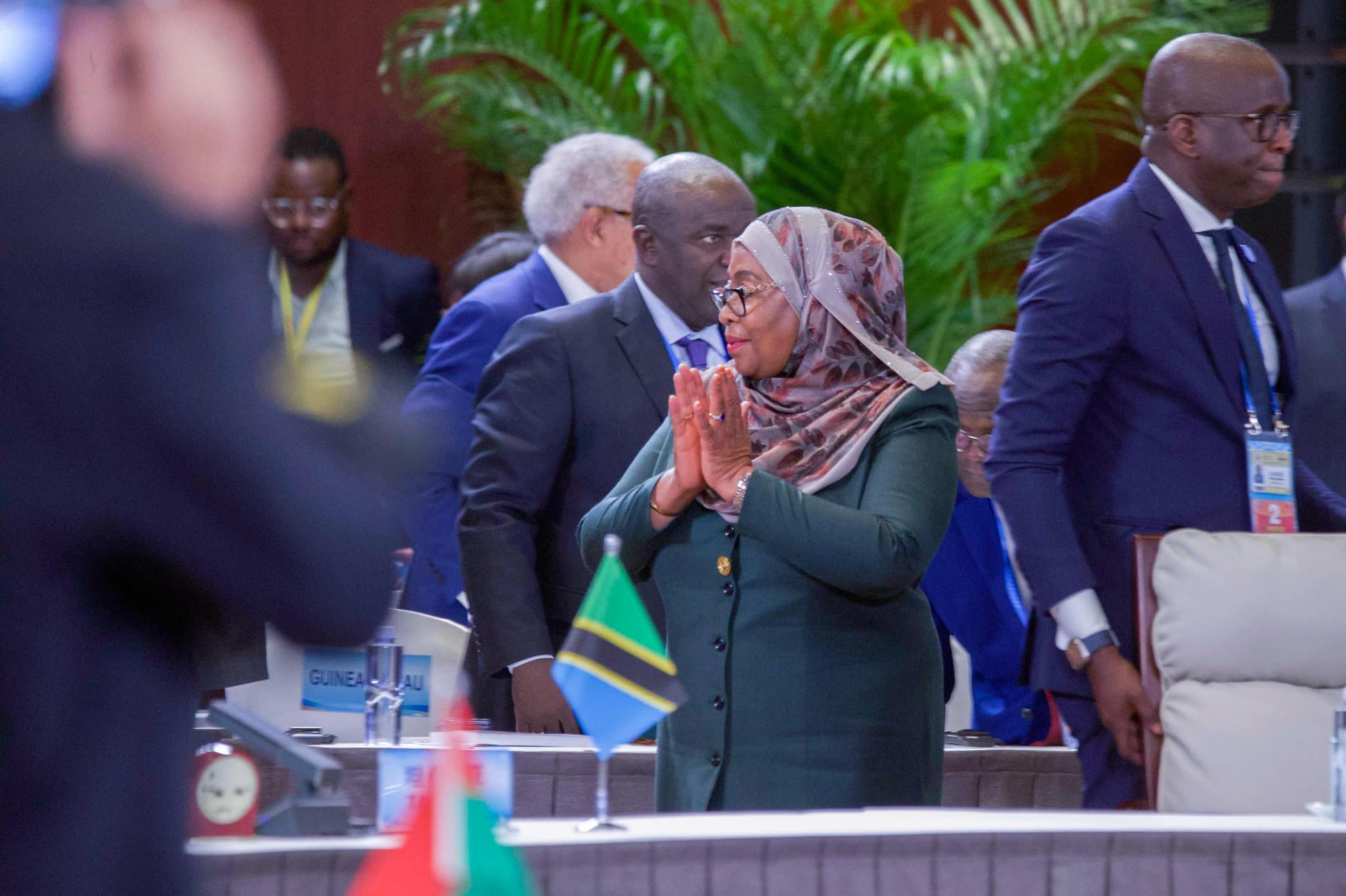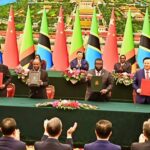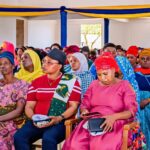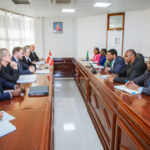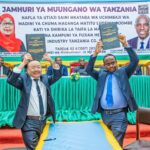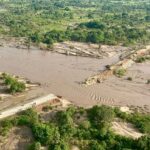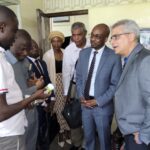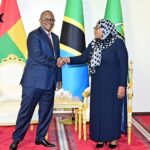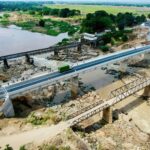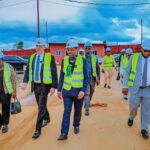On 6 September 2024, the President of the United Republic of Tanzania, Her Excellency Dr. Samia Suluhu Hassan, commenced a pivotal diplomatic mission to Beijing, China. This marked a significant chapter in Tanzania’s international economic diplomacy. The visit, which focused on the Forum on China-Africa Cooperation (FOCAC), served to illustrate the dynamic partnership between Tanzania and China, reflecting a shared vision for sustainable development and mutual prosperity.
A Strategic Dialogue with Chinese Industry Leaders
During her visit, President Samia Suluhu Hassan engaged in discussions at the highest level with key investors and leaders from prominent Chinese companies. These included the China Academy of Space Technology (CASC), China Electronics Corporation, Transsion Group, Weihua Group, China Railway Construction Corporation (CRCC), Acme Consultant Engineers PTE Limited, and CND. Each meeting was meticulously planned with the objective of exploring avenues for collaboration, investment, and technological exchange. The intention was to bolster Tanzania’s infrastructure, technological landscape, and economic growth.
Key Highlights of the Engagements
-
China Academy of Space Corporation (CASC): The discussions with CASC centred on the utilisation of space technology for the advancement of sustainable development. Tanzania, with its extensive geographical and natural resources, stands to gain considerably from satellite technology in areas such as agriculture, disaster management and telecommunications. Such a collaboration could facilitate the enhancement of Tanzania’s technological capabilities and infrastructure.
-
China Electronics Corporation: In light of the accelerated digital transformation that is sweeping across the globe, the dialogue with China Electronics Corporation was centred on the enhancement of Tanzania’s digital infrastructure. The discussion encompassed the advancement of smart cities, the domain of cybersecurity, and the enlargement of digital services, which are of paramount importance for Tanzania’s socio-economic growth.
-
Transsion Group: Transsion Group, a company renowned for its market dominance in the African mobile phone market, held a pivotal meeting with President Hassan dominance in the African mobile phone market. The discussions centred on the potential expansion of manufacturing capabilities in Tanzania, which could result in job creation and the development of skills, thereby further integrating Tanzania into the global supply chain.
-
Weihua Group: As a prominent entity in the manufacturing of cranes and heavy machinery, Weihua Group’s prospective investment in Tanzania has the potential to markedly enhance the country’s industrial sector. The discussions emphasised the importance of infrastructure development for Tanzania’s economic transformation.
-
China Railway Construction Corporation (CRCC): The development of infrastructure remains a key priority for Tanzania, and the expertise of CRCC in railway construction offers a promising opportunity in this regard. The discussions centred on the potential for improving Tanzania’s railway infrastructure, which is of critical importance for enhancing trade logistics and regional connectivity.
-
Acme Consultant Engineers PTE Limited and CND: These companies possess considerable expertise in the fields of engineering and consultancy. The meetings examined the possibility of forming collaborative partnerships in the fields of urban planning and sustainable development, with the objective of aligning with Tanzania’s vision for the modernisation of its cities and the enhancement of living standards.
The Broader Context: Forum on China-Africa Cooperation (FOCAC)
President Samia Suluhu Hassan’s participation in FOCAC is indicative of Tanzania’s commitment to the reinforcement of its diplomatic relations with China and other African countries. FOCAC provides a forum for dialogue and cooperation on matters of mutual interest, including trade, investment, and infrastructure development. The objective of Tanzania in participating in this forum is to attract further Chinese investment, which it hopes will facilitate economic growth and development.
Implications for Tanzania’s Economic Future
The discussions held during President Samia Suluhu Hassan’s visit are likely to have significant and far-reaching implications for Tanzania’s economic landscape. By engaging with industry leaders and investors, Tanzania is positioning itself as a regional hub for innovation and development in Africa. Such potential investments and collaborations could result in:
-
The creation of employment opportunities is a fundamental objective of economic policy. A rise in investment in the manufacturing and infrastructure sectors in Tanzania has the potential to result in a notable increase in employment opportunities, which in turn could lead to a reduction in the unemployment rate and an improvement in the quality of life for its citizens.
-
Technological Advancement Collaborations with companies such as CASC and China Electronics Corporation have the potential to accelerate Tanzania’s technological advancement, thereby improving sectors including agriculture, healthcare and education.
-
Infrastructure Development The formation of strategic alliances with CRCC and Weihua Group has the potential to revolutionise Tanzania’s infrastructure, facilitating enhanced connectivity and propelling trade on a regional and international scale.
-
The concept of sustainable development The emphasis on sustainable projects is consistent with Tanzania’s dedication to environmental conservation and sustainable development, thereby ensuring long-term benefits for future generations.
A Vision for Africa: President Samia Suluhu Hassan’s Address at the FOCAC High-Level Conference
On 5 September 2024, the global spotlight was focused on Beijing as Her Excellency Dr. Samia Suluhu Hassan, President of the United Republic of Tanzania, delivered a keynote address at the High-Level Conference on Industrialisation and Modern Agriculture in Africa. This pivotal event, held under the auspices of the Forum on China-Africa Cooperation (FOCAC), brought together leaders and experts from across the globe to discuss and strategise the future of Africa’s industrial and agricultural sectors.
Setting the Stage: The Importance of FOCAC
The Forum on China-Africa Cooperation (FOCAC) has historically functioned as a pivotal forum for dialogue and collaboration between African nations and China. Since its inception, the Forum on China-Africa Cooperation (FOCAC) has facilitated a multitude of initiatives with the objective of fostering economic growth, technological advancement and sustainable development across the African continent. The 2024 conference, with its focus on industrialisation and modern agriculture, highlighted the imperative for transformation of these sectors in order to equip them to meet the challenges and opportunities of the 21st century.
President Samia Suluhu Hassan: A Leader with a Vision
President Samia Suluhu Hassan, renowned for her pragmatic approach and visionary leadership, has been a staunch proponent of sustainable development and economic empowerment in Tanzania and beyond. Her involvement in the conference was not merely a gesture of participation; it was a demonstration of her dedication to effecting transformative change in Africa.
In her address, President Samia Suluhu Hassan underscored the pivotal role of industrialisation and modern agriculture in attaining sustainable development goals. She emphasised the necessity for innovative strategies and robust partnerships in order to fully utilise the vast resources and potential of the African continent. Her speech constituted a clarion call for action, urging stakeholders to collaborate in the construction of resilient economies capable of withstanding global economic fluctuations and environmental challenges.
Industrialisation: The Engine of Economic Growth
In her address, President Samia Suluhu Hassan set forth a comprehensive vision for industrialisation in Africa, emphasising the establishment of value-added industries that can stimulate economic growth and generate employment opportunities. She highlighted that Africa, with its wealth of natural resources, has the potential to become a global industrial hub. Nevertheless, the realisation of this potential will necessitate substantial investment in infrastructure, technology and human capital.
She advocated for augmented investment in manufacturing and processing industries, which can transform raw materials into finished goods, thereby increasing their value and creating employment opportunities. Additionally, President Samia Suluhu Hassan emphasised the necessity of formulating industrial policies that are both inclusive and environmentally sustainable, thereby guaranteeing that industrial growth does not compromise ecological integrity.
Modern Agriculture: Feeding the Future
In her remarks on agriculture, President Samia Suluhu Hassan underscored its dual role as both a traditional source of livelihood and a modern economic driver. Despite the continued importance of agriculture to many African economies, the sector faces a number of significant challenges, including the impact of climate change, the persistence of outdated farming practices and the lack of adequate infrastructure.
President Samia Suluhu Hassan advanced the case for the adoption of contemporary agricultural techniques, which have the potential to enhance productivity and guarantee food security. She highlighted the necessity for investment in research and development to facilitate the creation of resilient crop varieties and enhance farming methods. Furthermore, she emphasised the necessity of providing support to smallholder farmers, who represent the majority of the agricultural workforce, through the provision of access to finance, technology and markets.
The Role of China-Africa Cooperation
A substantial proportion of President Samia Suluhu Hassan’s address was devoted to the role of China-Africa collaboration in attaining these ambitious objectives. She acknowledged China’s contributions to Africa’s development, particularly in the realms of infrastructure and technology transfer. The president advocated for the intensification of these partnerships, emphasizing the importance of mutual benefit and respect for Africa’s development priorities.
She put forth the proposal of establishing joint ventures and knowledge-sharing platforms that would facilitate the transfer of technology and expertise from China to Africa. Such collaborative endeavours, she posited, would empower African countries to expedite their developmental trajectory and embrace innovative solutions tailored to their distinctive contexts.
Challenges and Opportunities
Although President Samia Suluhu Hassan’s outlook was optimistic, she was not reticent in confronting the challenges that lie ahead. She acknowledged that political instability, inadequate infrastructure, and limited access to finance continue to represent significant barriers to industrial and agricultural development in many African countries. However, she expressed confidence that these challenges can be overcome through the implementation of strategic planning, regional cooperation, and international support.
Additionally, President Samia Suluhu Hassan emphasised the potential of Africa’s youthful population as a source of innovation and entrepreneurship. By investing in the expansion of educational opportunities and the development of skills, African nations can equip their youth with the tools necessary to flourish in a rapidly evolving global economy.
In conclusion, it can be stated that… A Vision for Mutual Prosperity
President Samia Suluhu Hassan’s visit to China represents a strategic move towards fostering a robust economic partnership with one of the world’s leading economies. Through her engagement with Chinese industry leaders, Tanzania is poised to embark on a trajectory of economic transformation, leveraging technology, infrastructure, and sustainable development to achieve its vision of prosperity.
As Tanzania continues to reinforce its connections with China, the prospective future presents promising prospects for growth, innovation, and collaboration. This visit serves to reinforce Tanzania’s position on the global stage, while simultaneously exemplifying the power of international cooperation in driving economic development and improving the lives of millions.
A Call to Action
In concluding her address, President Samia Suluhu Hassan issued a compelling call to action. She exhorted African leaders, international partners, and private sector stakeholders to collaborate in the pursuit of a prosperous and sustainable future for the continent. Her speech conveyed a sense of urgency and possibility, underscoring the fact that the decisions made today will shape the future of Africa.
The High-Level Conference on Industrialisation and Modern Agriculture in Africa represented a pivotal moment for reimagining the continent’s development trajectory. The presence of President Hassan at this conference has instilled a renewed sense of optimism that Africa can chart a course toward sustainable prosperity. This will be achieved by leveraging the continent’s resources, talent, and partnerships to build a brighter future for all its people.
As the conference drew to a close, it became evident that the discussions and commitments made in Beijing would have significant implications for the future of Africa’s industrial and agricultural sectors. The path ahead is fraught with challenges, but with visionary leadership and collaborative action, the continent stands poised to realise its full potential in the years to come.
Tanzania Media
- Kanyala Ferry Launch: TEMESA’s New Service for 15,000 Sengerema Residents (Mwanza) - 18 August 2025
- Russia-Tanzania Naval Cooperation: How the Smolny Training Ship Boosts Dar es Salaam’s Maritime Security - 18 August 2025
- Tanzania’s ICGLR Commitment: Stabilising the DRC & Great Lakes Region - 18 August 2025

